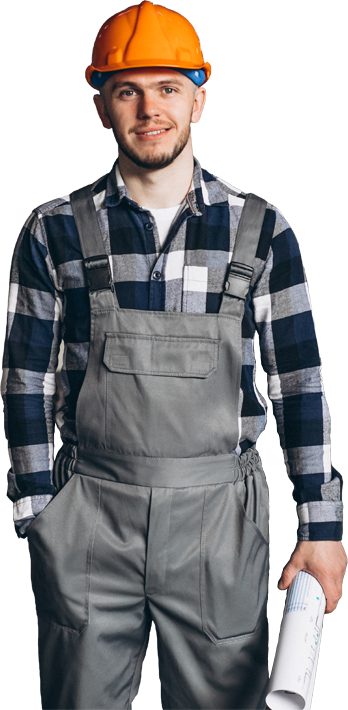Additive Masterbatch Manufacturer
The Role of Additive Masterbatches in Enhancing Polymer Properties
Introduction: In the rapidly evolving world of plastic manufacturing, additive masterbatches play a crucial role in improving the functionality, aesthetics, and performance of plastic products. From UV protection to flame retardancy, additive masterbatches offer specialized solutions for various industries, making plastics safer, more durable, and better suited to diverse applications. This blog explores the importance of additive masterbatches, the types available, and how they’re shaping the future of polymer engineering.
1. What Are Additive Masterbatches?
- Definition: Additive masterbatches are concentrated mixtures of additives incorporated into a polymer carrier resin. They’re designed to introduce specific properties to plastics during the manufacturing process.
- Importance in Polymer Manufacturing: Explain how additive masterbatches allow manufacturers to modify standard polymers to meet industry-specific requirements.
2. Key Types of Additive Masterbatches
- UV Stabilizer Masterbatches: Protect polymers from degradation caused by UV exposure, extending the life of outdoor plastic products.
- Antioxidant Masterbatches: Prevent polymer degradation caused by oxidation, particularly useful in applications with high heat exposure.
- Antimicrobial Masterbatches: Add antimicrobial properties, ideal for applications in healthcare and food packaging.
- Flame Retardant Masterbatches: Improve fire resistance, essential for building materials and electronics.
- Slip, Anti-block, and Antistatic Additives: Improve handling, processing, and surface quality in films and packaging materials.
3. Benefits of Using Additive Masterbatches in Manufacturing
- Enhanced Durability: Extends the life of products by protecting against environmental factors.
- Cost Efficiency: More economical compared to modifying base polymers.
- Customized Solutions: Tailored to meet specific industry standards and regulatory requirements.
- Ease of Processing: Improves processability, making manufacturing more efficient.
4. Key Industries Benefiting from Additive Masterbatches
- Automotive: Reducing wear and tear, heat resistance, and UV protection.
- Packaging: Antimicrobial, anti-static, and anti-block solutions to improve safety and shelf life.
- Construction: Flame retardant and UV-stabilized plastics for durability and safety.
- Agriculture: UV-stabilized films to protect crops and extend the lifespan of greenhouse films.
5. How to Choose the Right Additive Masterbatch Manufacturer
- Quality Standards: Look for certifications and compliance with industry standards.
- Customization Options: Ability to tailor products based on specific needs.
- Technical Support and Expertise: Knowledgeable teams can assist with product integration.
- Sustainability Initiatives: Environmental responsibility and offering recyclable options.
6. Future of Additive Masterbatches: Sustainability and Innovation
- Focus on Biodegradable Additives: Meeting the demand for eco-friendly plastic solutions.
- Improving Recycling Capabilities: Developing masterbatches that don’t interfere with recycling processes.
- Advanced Functionalities: Enhancements like self-cleaning, anti-microbial, and high UV resistance.
Conclusion:
Additive masterbatches have become indispensable in enhancing polymer properties across multiple industries. As manufacturers continue to innovate, these additive solutions are enabling plastic products that are not only more resilient and versatile but also more sustainable. Collaborating with a trusted additive masterbatch manufacturer ensures access to high-quality, tailored solutions that can significantly improve the performance and value of your products.
1. What is an additive masterbatch?
An additive masterbatch is a concentrated blend of additives in a polymer resin carrier. It’s added to base plastic materials to enhance or introduce specific properties, such as UV resistance, flame retardancy, or antimicrobial qualities.
2. What types of additive masterbatches are available?
Common types include:
- UV Stabilizers: Prevent degradation due to UV exposure.
- Antioxidants: Protect against oxidation.
- Antimicrobials: Add bacterial resistance, ideal for healthcare and packaging.
- Flame Retardants: Enhance fire resistance for safety.
- Slip, Anti-block, and Antistatic Additives: Improve surface qualities and handling.
3. How do I know which additive masterbatch I need?
The right additive depends on your application and the environmental factors it will face. Our team can help assess your needs to recommend suitable masterbatches for durability, safety, and other specific requirements.
4. Are additive masterbatches safe for use in food packaging?
Yes, many additive masterbatches are FDA-approved for use in food-contact applications. However, it’s essential to verify compliance with food safety standards based on the specific additives used.
5. How are additive masterbatches applied in the manufacturing process?
Additive masterbatches are typically introduced during the compounding or extrusion process. They blend with the base resin, allowing the desired properties to integrate seamlessly with the final plastic product.
6. Do additive masterbatches affect the recyclability of plastic?
Some additive masterbatches are designed with recyclability in mind, minimizing interference with recycling processes. We offer solutions that balance functionality and sustainability for more eco-friendly products.
7. What industries commonly use additive masterbatches?
Industries such as automotive, packaging, construction, agriculture, and healthcare widely use additive masterbatches to enhance durability, improve safety, and meet regulatory standards.
8. Can additive masterbatches be customized?
Yes, we offer custom solutions to meet specific requirements. Customization options include tailored formulations to meet unique performance standards, regulatory needs, and aesthetic preferences.
9. What are the benefits of using additive masterbatches over modifying base resins?
Additive masterbatches offer greater flexibility, cost-efficiency, and precision than modifying base polymers directly. They allow for easier adjustment of plastic properties without altering the core material.
10. How do I store additive masterbatches?
Store them in a cool, dry place, away from direct sunlight and moisture, to maintain effectiveness. Proper storage ensures long shelf life and consistent performance when used in manufacturing.

